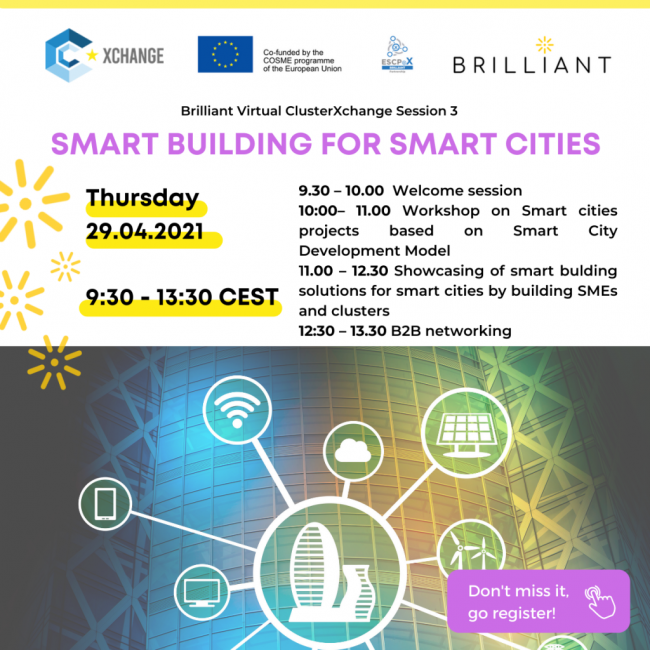
Description
The smart city concept is still in flux and subject to debate. Definitions of smart cities vary across countries and institutions according to the geopolitical context and to the specific issues at hand. However, in most cases, smart cities revolve around initiatives that use digital innovation to make urban services more efficient, sustainable and inclusive and thereby increase the overall competitiveness and well-being of a community.
At a time of physical distancing and lockdown, digital technologies are playing a major role in relaying real-time life-saving information, ensure the continuity of key public services and bridge social isolation. If well connected with inclusive and sustainable growth objectives, smart city applications can offer a powerful tool to empower new forms of local governance like co-creation through cross-boundary and cross-sectoral collaboration with active engagement of citizens, businesses, clusters, academia and public authorities.
The BRILLIANT virtual exchange programme aims to empower clusters and their SME communities to consider a smart city approach in their products and services in order to improve the lives of their residents through innovation, data and connected technology while considering also circularity and inclusivity of the proposed solutions.
The lecturers and workshops proposed for the virtual exchange will enable us to better understand the interplay between smart cities and clusters and businesses, and provide insights on how can clusters support the development of smart cities? How can smart cities foster clusters? What are the enablers for and obstacles in this “collaboration”? The connection between clusters and smart cities is quite significant in relation to the need for promoting and supporting research, innovation and education of cluster’s members (mainly SMEs), and for developing and implementing solutions and projects for smart city areas.
In this respect, the direction of this connection is not univocal: existing clusters may be the main supporter of the development of smart cities as well as smart cities can be seen as cluster boosters.
Agenda
29.04.2021 SMART BUILDING FOR SMART CITIES
9.30 – 10:00 - INTRODUCTION
15’ Marta Krakowiak (ELCA European Lighting Cluster Alliance) – initial greetings, presentation of the BRILLIANT project and the ClusterXChange program
15’ Tamás Gyulai (Hungarian Open Innovation Cluster for Construction Industry – MIÉNK) – Digital transformation in the construction sector
10:00– 10.45: SMART BUILDING FOR SMART CITIES - Thematic Workshop
Experience of Smart City projects based on the Smart City Development Model devised by Lehner Knowledge Centre in Hungary which aligns the concept of smart city with urban developments and solutions as well assists businesses and local governments in devising smart city plans and projects.
Expert: Samu Szemerey, Lehner Knowledge Centre in Budapest, Hungary
10:45 – 11:00 Q&A
11:00 – 12.15: Showcasing of smart building solutions for smart cities by SMEs
15’ Geolink3D Kft (HU)
15’ ArchiTube (PL)
15’ BIM6D (ES)
15’ URBAN PM (HU)
12:15 – 12:30 Q&A
12:30 – 13.00 short break
13:00 – 13.30 B2B networking (bilateral B2B and C2C exchanges in private Zoom rooms)
Location and date
Virtual Event